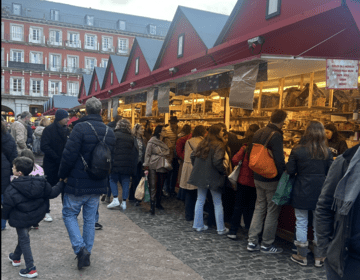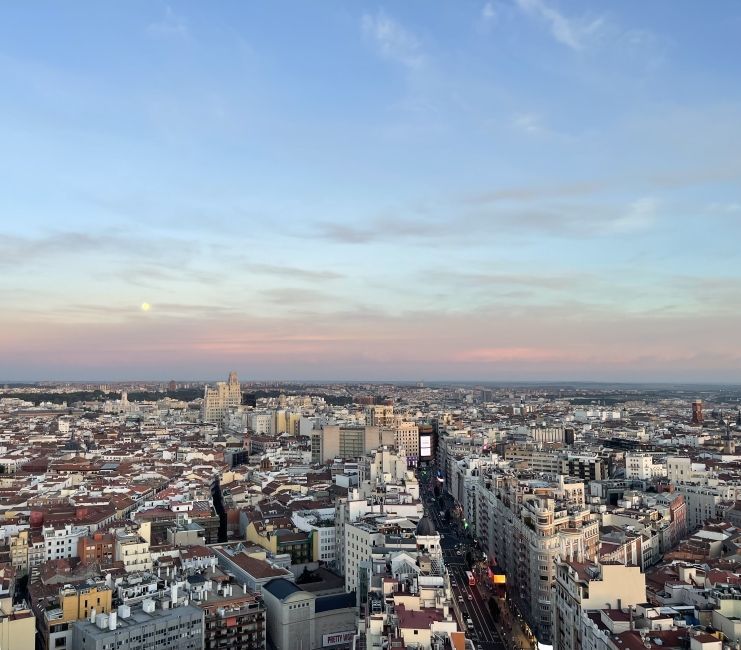Navigating the Emotional Rollercoaster of Adulting Abroad
“The scary news is… you’re on your own now. But the cool news is… You’re on your own now!” ~Taylor Swift
Living Abroad is Fun, but it’s also Difficult
Nobody talks about how living abroad can be hard. It can be hyper romanticized which isn't sensitive to the real life minute situations that occur, and can feel overly dramatic as you are experiencing it. Living abroad does not fix all your problems, suddenly make you a better and more organized person, or make you feel happy all the time. Living abroad does not make you exempt from experiencing reality, even though social media can make it seem that way.
We are human beings who are constantly growing and maturing. Being a twenty-three-year-old, navigating that maturation while juggling other moving pieces in an unfamiliar environment can prove to be quite difficult.
There are Levels to Transition
I thought I had mastered it after experiencing the common “post-graduation” crisis. You know, being proud of yourself for graduating, being excited about a new chapter of life, but also being reluctant to leave behind the community of people you’ve grown to love over the past four years. Continuing to grasp onto that fleeing chapter can prove to become increasingly difficult as you juggle adult life with bills, larger responsibilities, and more accountability. I’ve found that living abroad is similar to the “post-graduation” crisis. It is amplified, as you have to continue to manage adult responsibilities, and also manage the following: a new environment, language barriers, keeping a new routine, budgeting, regulating emotions, managing expectations for relationships, dealing with homesickness, and potential housing problems.
Their Perceptions Are Not Your Reality
Sometimes people from home can have a false perception of what your life is like living abroad. They can create a picture-perfect image of your life abroad, with no room for anything other than joy. Many people have told me, “You’re living your best life”, “You’re living in a European fantasy”, or “You look the happiest you’ve ever been”. When I hear such extreme statements, it sometimes has the opposite effect than what is intended. It makes me feel guilty, selfish, and ungrateful for not enjoying every moment of my experience. I tend to face a lot of cognitive dissonance and shame for having these seemingly negative but very real feelings. I have to remind myself that friends and family only have social media to judge how my experience is going in Spain. Although social media is a great way to share and stay connected, people often post the best parts of their lives, which contributes to a fabricated perception of an experience.
Give yourself Grace and Continue to be Resilient
I’ve realized the only way to cope and navigate this sentiment is to give yourself grace and to acknowledge how you’re truly feeling. Living abroad is hard. You’re simultaneously living your best life, but at the same time your emotions can get the best of you and normal things can feel dramatic and hard to manage. It’s normal, and you shouldn’t beat yourself up for having “negative” feelings while living a privileged experience. Lately, I’ve been trying to manage many emotions related to homesickness, friendships, relationships, housing, career, and anxiety.
Here are a few tips I’d like to share, so you can meditate on them while you are abroad or if you plan to live abroad:
- Learn How to Regulate Your Emotions: Recognize that every feeling you have is not rooted in facts. It’s important to recognize that feelings aren’t indicative of your character, and you shouldn’t feel bad for having them in the first place. Acknowledge them and let them pass to move forward and not feel consumed by them.
- Stay in Touch with Family, but Don’t Rely on Them: It’s great to stay in touch with family and update them on the things happening in your new life. It starts to become harmful when your family and friends from home are your main and only source of support and community. Push yourself to build new connections, so life abroad doesn’t feel as isolating.
- Nurture the Relationships in the Place You Are Now: Make an effort to have follow-up interactions with the new people you are meeting. Do your best to get to know them and share parts of yourself too to form a genuine connection. The relationships you form abroad can enhance your experience in unimaginable ways.
- Push Yourself to Explore Your New Home with Others or by Yourself: Don’t fall victim to living in a bubble. Take advantage of every day to explore at least one new coffee shop, park, or place in Madrid. Don’t feel bad if your budget doesn’t allow you to travel outside Madrid. Use your long weekends to take day trips and utilize your Abono public transit card (and your legs because you WILL be walking a lot) to their full potential. Don’t be afraid to do things alone or go on “solo trips” either.
- Pray, Journal, or Meditate: Whenever you don’t feel like yourself, or you can’t stay focused on the task at hand, you can experiment with small prayers, brief journaling, and short meditations. You don’t have to be an expert at it, for it to be effective. I have recently experimented with these things and have seen a positive difference.
- Set Goals for Yourself and Structure Your Time: Sometimes the best way to overcome feeling overwhelmed and homesick is by setting goals for your time abroad and splitting it up into smaller, more manageable goals measured per week rather than per your whole time abroad. Having something to look forward to and accomplish can help motivate you to get out of a funk.
- Acknowledge, but also Shift your Perspective: Everything you’re going through should produce a positive byproduct. No experience is a wasted experience. If something was negative, your body needed to experience the feeling to prepare you for something else to come. Trying to find the good in things and finding the lesson in it isn't overly positive, it’s productive.
These tips have helped me to give myself grace and process all that I am experiencing. While I am enjoying my time abroad, I am realizing that it’s okay to acknowledge the not-so-positive experiences, and realizing that it doesn’t make me ungrateful or negative. I hope some of you can relate to the sentiments of this article and that my tips help you to navigate a current or future situation. Thanks for reading!
Related Posts
An Unexpected Yet Required Skill When Moving Abroad
Considering living abroad? Read on to see if you have what it takes!

Halfway There: Winter Break Reset
We finally made it to winter break — and let’s be honest, we all saw this one coming from miles away. These past few months have been a whirlwind of... keep reading

An American in Spain: Thanksgiving Edition
Where to find ingredients in Madrid for a classic Thanksgiving dinner!

